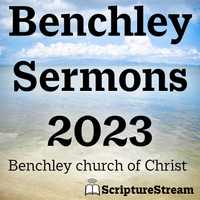Introduction
- Acts 20:17, 28
- I Thessalonians 5:12-13; I Timothy 3:1
Why study this?
- To help our current elders in their work.
- To help other men prepare for this work.
- To help the rest of us appreciate their work.
- To differentiate between tradition and God’s word.
Overseeing souls
- Acts 20:28-32
- I Thessalonians 5:12-13 – Elders have charge over people in the congregation and lead them.
- I Timothy 3:4-5 – Elders take care of the church of God. An elder’s work as a family man shows how he will do as an elder. If a man cannot lead his own family well, how can he hope to lead a local church?
- Hebrews 13:17 – Elders keep watch over souls. They will give account for the souls under their care.
- Acts 11:27-30 – This is the only passage in the New Testament that specifically talks about the elders handling money.
- James 5:14-16 – This could be talking about spiritual sickness.
Wielding the sword of the Spirit
- Titus 1:9-14 – Elders must use the Bible in both positive and negative ways. Both exhorting and refuting error.
- Acts 20:32 – Prepare to use the word!
- I Timothy 5:17-18 – Elders are worthy of double honor: respect and money. It is rare these days for elders to be paid, but we do have scriptural authority for it.
Developing their character
- I Peter 5:1-4 – Elders work voluntarily, show eagerness, and act as examples for others.
- Ezekiel 34:1-6, 10 – Shepherds love people and are willing to step into many situations even if they are awkward.
- Acts 20:30
- I Thessalonians 5:12
- Titus 1:9, 13
